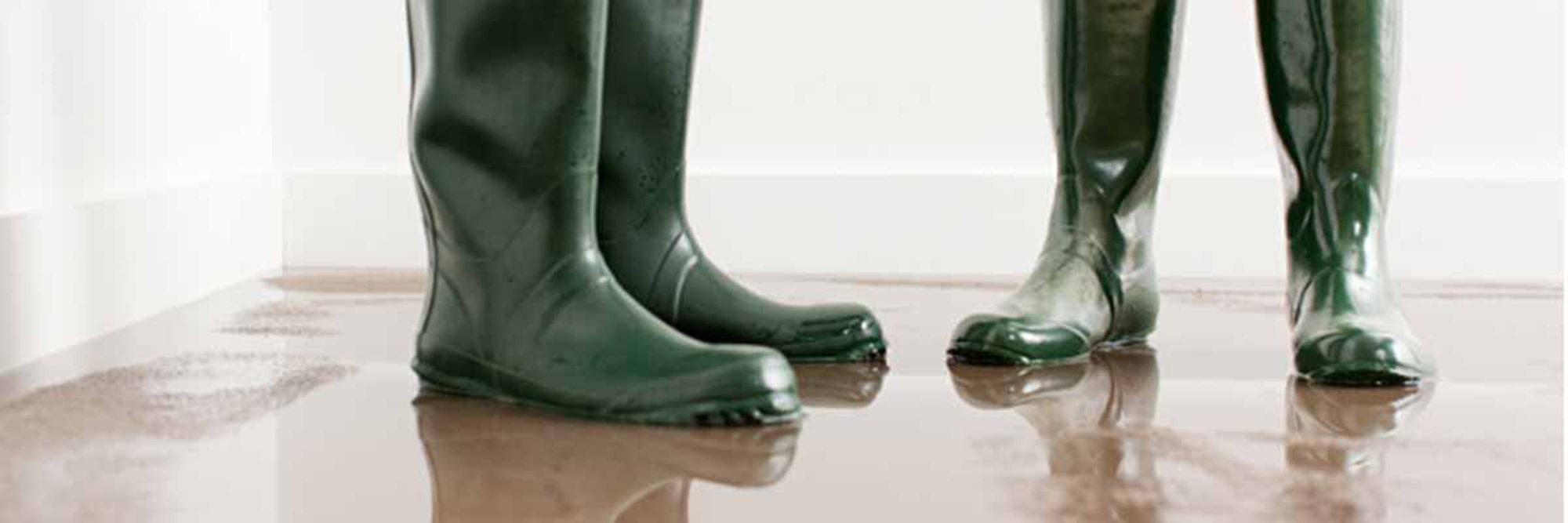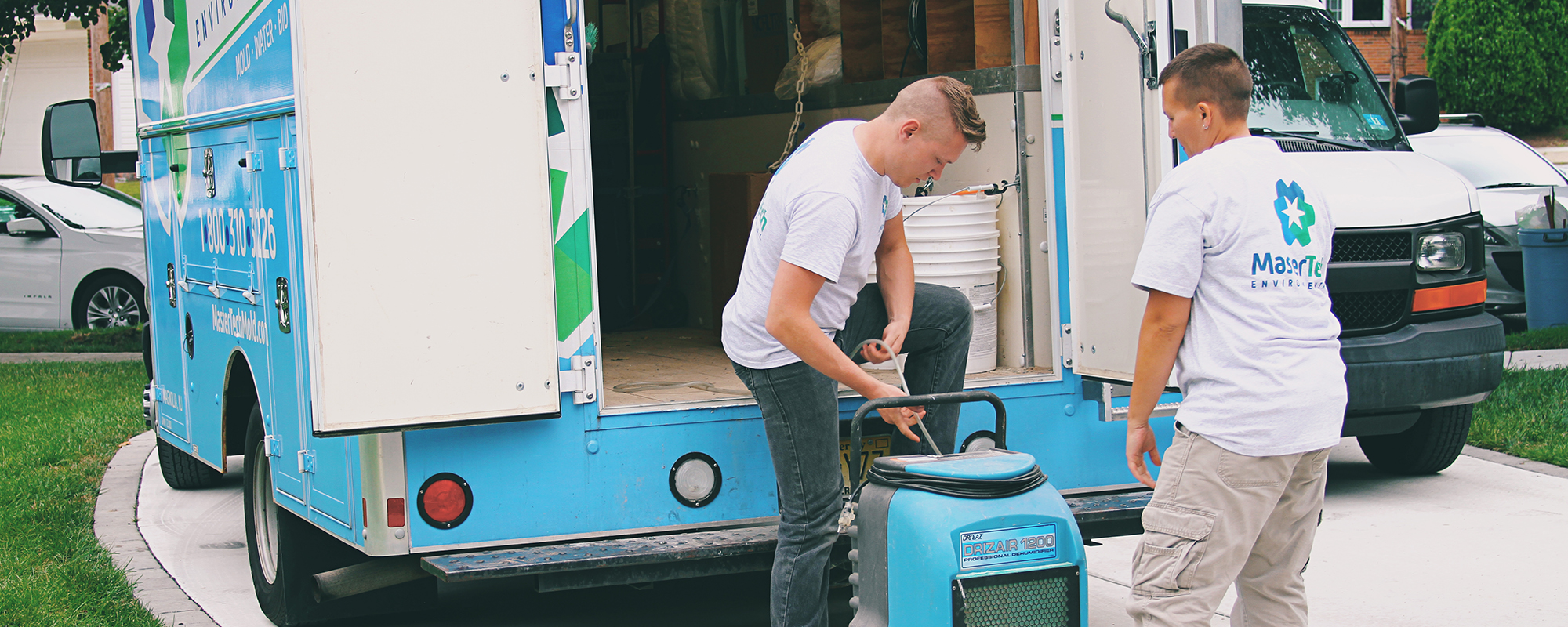
Once water is loose indoors, it can flow anywhere and cause all kinds of damage to your building materials. Water can wreak havoc on your home or business if it collects in inappropriate places and is not thoroughly dried out soon enough. Water can be sneaky and inconspicuous so we have to rely on identifying the symptoms of a hidden indoor moisture problems and understanding conditions that can cause hidden water damage.
If your NJ property falls victim to a serious leak or flood, you should consider contacting an emergency NJ structural dry-out company immediately to properly extract the water and thoroughly try your property. A team of professionals will be fully equipped and trained with the necessary water mitigation equipment and skills to ensure that your property is safely restored. An inadequate dry out can have serious repercussions for property owners. If the building is not thoroughly dried out, residual moisture can collect and wreak havoc on the building further down the line and leave you with serious property damage and a costly repair.
Symptoms of Indoor Moisture Problems in South Jersey
Leaks and other indoor water intrusion and easily go unnoticed for an extended period of time. Pay attention to the signs that could be pointing you to serious indoor moisture problems.
Signs of Mold
It only take 24-48 hours for major mold to develop with adequate water. Mold is most commonly the side effect of an underlying indoor moisture problems. If you suspect potential mold development due to indoor moisture problems, you should consider calling an expert to complete a comprehensive South NJ mold inspection. A certified professional will be properly trained and equipped to safely diagnose the full extent of your mold problem and find where the water starts and stops.
- Musty odors– Hidden water remains stagnant and promotes mold and bacteria growth. This produces a musty, earthy smell.
- Visual signs of mold growth– When moisture comes into contact with dormant spores, active mold growth begins. If you identify potential mold spores developing in your property, call a mold removal company in Southern NJ.
Suspicious Staining
Unexplained staining and/or discoloration can be the result of water damage. Water that seeps into wall and/or ceiling voids often manifests as a stain or blotch as it slowly saturates the adjacent wallboard or ceiling. Oftentimes, stains will appear to be yellowish in color. If there is mold growth developing, the stain might appear to be darker.
Peeling Wall or Ceiling Finishes
In situations where there is excess moisture buildup within the wall and/or ceiling voids, the water will eventually saturate the adjacent drywall and wall finishing. The saturation will compromise adhesion, causing the paint or wallpaper on the opposing side to raise, ripple, bubble and/or peel.
Sweating Walls
Condensation can begin to develop on walls, ceilings and/or windows if there is any underlying moisture problem in the space. Often times, your South Jersey home suffers from humidity problems, you might notice condensation developing during cooler climates. When water vapors in the air come in contact with a cold surface, the vapors cool and turn to liquid.
Areas of condensation can also develop on ceilings and walls when there is excessive moisture festering in wall and/or ceiling voids. This can be caused by a leak or a mixture of high humidity, poor ventilation and/or inadequate insulation.
Swelling
If your porous building materials come into constant contact with moisture, you might notice that your materials will start to swell. As water absorbs into wood, drywall, flooring, etc., the materials will begin to swell and become visually obvious over time.
- Swollen door casing or door alignment- As water absorbs into your door jam, the jam will swell and affect the alignment with your door. It will be difficult to actually see the swelling, but you will experience it. The door will slowly become more and more difficult to open and close.
- Baseboards/trim separating from the wall- As building materials swell up, materials that were once flush against each other will begin to grow and push against each other and force material separation.
Sagging walls and ceilings
Excessive water collected within your building materials can impose a great deal of weight and stress on the structure of your Southern New Jersey property. With time, the excess weight and stress will reflect in your walls and ceilings. Eventually, saturated drywall and ceiling materials begin to deform and buckle. Water-soaked walls and ceilings compromise the structural integrity of the NJ home and present a safety hazard if they collapse.
Floor effects
Water most commonly seeks out and travels to the lowest level and seeps under floor coverings (i.e.: carpet, tile, vinyl, etc.) and soak into the sub-floor. If you are experiencing dampness or signs of dampness on your floors, you may need a professional dry-out. In some cases, removal of some floor coverings, particularly carpet and padding, may be necessary to effectively dry the structure. Untreated moisture collected within your flooring can lead to widespread mold growth that will require the help of a professional mold remediation company in South Jersey.

Handling Water Damage & Mold Damage in South Jersey
As seemingly harmless water can be on a regular, day-to-day basis, water in your Southern New Jersey home or commercial property can be detrimental. Unaddressed, indoor moisture problems can reek havoc on your building materials and leave you significant, widespread structural damage. If detect signs of a potential water problem in your residential or commercial property in NJ, you need to act fast and contact a trained a certified professional for assistance. Early detection and action and reduce, possibly even prevent, excessive and expensive property damage.
The nature of water allows flow into all kinds of nooks and crannies. That is why, often times, water problems like slow leaks tend to get overlooked for extended periods of time. In cases where the homeowner suspects that the moisture problem has existed for a while, it would be wise to consider contacting a trained and certified mold inspector in South Jersey to conduct a thorough mold inspection of the property for possible mold development.


